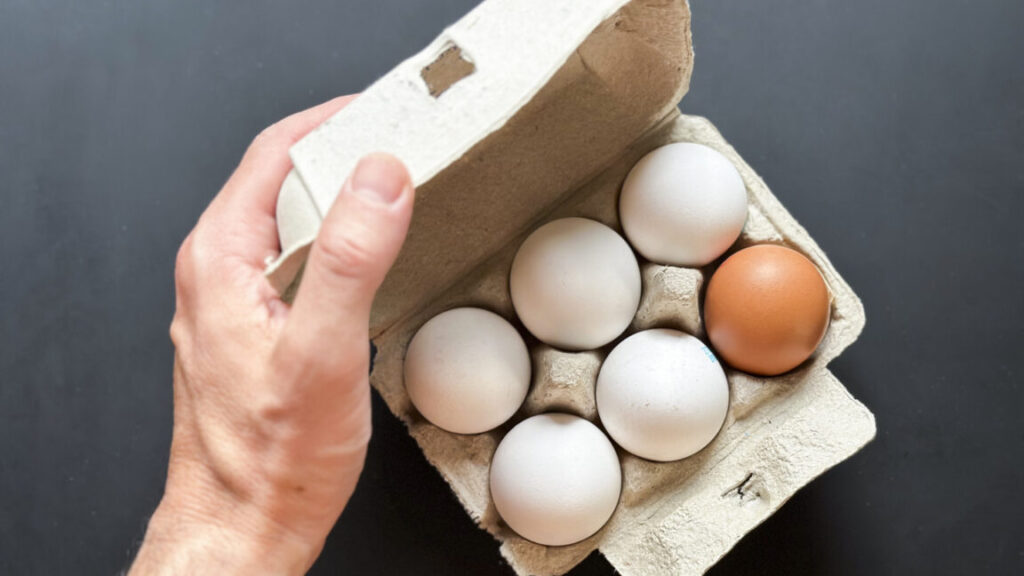
An egg is an amazing thing, culinarily speaking: delicious, nutritious, and versatile. Americans eat nearly 100 billion of them every year, almost 300 per person. But eggs, while greener than other animal food sources, have a bigger environmental footprint than almost any plant food—and industrial egg production raises significant animal welfare issues.
So food scientists, and a few companies, are trying hard to come up with ever-better plant-based egg substitutes. “We’re trying to reverse-engineer an egg,” says David Julian McClements, a food scientist at the University of Massachusetts Amherst.
That’s not easy, because real eggs play so many roles in the kitchen. You can use beaten eggs to bind breadcrumbs in a coating, or to hold together meatballs; you can use them to emulsify oil and water into mayonnaise, scramble them into an omelet or whip them to loft a meringue or angel food cake. An all-purpose egg substitute must do all those things acceptably well, while also yielding the familiar texture and—perhaps—flavor of real eggs.
Today’s plant-based eggs still fall short of that one-size-fits-all goal, but researchers in industry and academia are trying to improve them. New ingredients and processes are leading toward egg substitutes that are not just more egg-like, but potentially more nutritious and better tasting than the original.
In practice, making a convincing plant-based egg is largely a matter of mimicking the way the ovalbumin and other proteins in real eggs behave during cooking. When egg proteins are heated beyond a critical point, they unfold and grab onto one another, forming what food scientists call a gel. That causes the white and then the yolk to set up when cooked.
Credit:
Adam Gault via Getty
That’s not easy to replicate with some plant proteins, which tend to have more sulfur-containing amino acids than egg proteins do. These sulfur groups bind to each other, so the proteins unfold at higher temperatures. As a result, they must usually be cooked longer and hotter than ones in real eggs.